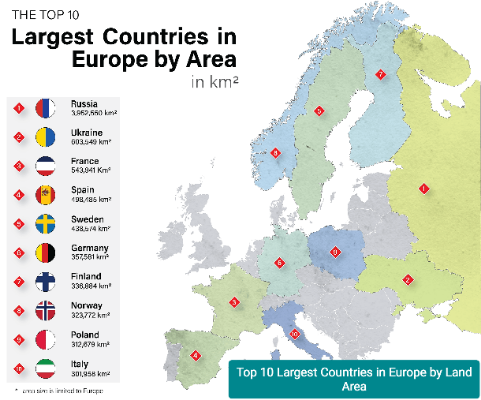Dreaming of studying medicine in Europe without breaking the bank? You’re in the right place. Whether you’re an international or non-EU student, several European countries offer excellent medical education with minimal or no tuition fees. This guide walks you through the best destinations, what “free” really means, and how to take advantage of these opportunities.
Why Study Medicine in Europe Without Paying Tuition?
- Top-tier medical training: European medical schools are globally recognised and respected.
- Lower costs overall: Even where tuition isn’t free, living and study expenses are often more affordable than in North America.
- Accessible to international students: Many countries welcome non-EU applicants with the same tuition terms as locals. ALSO READ: GUIDE TO LANDING A MEDICAL JOB IN EUROPE
- Language flexibility: Increasing availability of English-taught programmes in public universities.
1. Germany – Truly Tuition-Free (Mostly)
Public universities in Germany generally charge zero tuition for all students—including non-EU nationals—with the exception of a few states like Baden-Württemberg that reintroduced tuition (~€1,500/semester) for non-EU students. More commonly, students pay only a modest semester fee of around €150–€350 that covers admin and student services.
German medical schools are consistently ranked high, offer strong clinical opportunities, and provide access to student support services. If you’re fluent or willing to learn German, your options widen significantly.
2. Norway – No Tuition, Even in English
Norwegian public universities charge zero tuition to students from anywhere in the world—including non-EU applicants. You’ll only pay a small semester fee (roughly €30–€60), which usually covers student health and union costs.
The downside? Living costs in Norway are among the highest in Europe (€700–1,400/month, up to €2,000 in Oslo). Still, free tuition makes it worth serious consideration—especially if English-taught options are available.
3. Austria – Low Fees but Not Always Free
Austrian public universities are tuition-free only for EU/EEA students who stay within the standard study duration. Non-EU students usually pay around €727 per semester, plus minor fees like insurance and student union contributions—still fairly affordable compared to many countries.
While not free, the cost remains reasonable. Austrian medical schools are known for high-quality training, modern facilities, and international environments.
4. Finland, Sweden, Denmark – Partial, Not Full, Tuition Freedom
Finland, Sweden, and Denmark once offered free tuition to everyone, but now only EU/EEA and Swiss students qualify for free education. Non-EU/EEA students must pay tuition fees—Finland’s range is about €1,500 to €18,000 per year.
Still, scholarships and grants may reduce that burden—worth exploring if you’re interested in Nordic countries.
5. Czech Republic, Germany, France, Greece – Free If You Speak the Language
Public universities in the Czech Republic, France, Greece, and Germany may waive tuition if you’re fluent in the local language—at least at the undergraduate level.
English-taught programmes often come with higher fees—but mastering the language could unlock tuition-free routes and immerse you in local culture.
6. Hidden Gems: Affordable Options in Central & Eastern Europe
Some of the most cost-effective medical schools are found in Eastern Europe—Romania, Hungary, Poland, Bulgaria, Slovakia, and Croatia offer lower tuition compared to Western Europe.
For example, the Medical University of Plovdiv in Bulgaria provides programs in English and sees many international students—including Brits—thanks to limited UK placements. Romania, Poland, and Hungary offer similar affordability, often combined with reputable schools and growing international student communities.
ALSO READ: MEDICAL SCHOLARSHIPS IN EUROPE FOR NON-EU STUDENTS
7. Erasmus Mundus and Scholarship Routes to Tuition Freedom
If free isn’t an option directly, consider scholarship pathways like Erasmus Mundus, which funds joint Masters/Doctorates across European institutions with full coverage of tuition, living, and travel costs.
Additionally, the European Education Area lists thousands of grants and scholarship programs, some of which may fully or partially sponsor medical studies.
Quick Comparison: At-a-Glance
| Country/Region | Tuition for Non-EU Students | Notes |
|---|---|---|
| Germany (most public) | ≈€0 | Small semester fees (€150–350) |
| Norway | €0 | Semester fees only (~€30–60), high living costs |
| Austria | ≈€727/semester | Only EU students free within standard duration |
| Finland, Sweden, Denmark | €1,500–18,000/year | Only EU students get free tuition |
| Czech, France, Greece | €0 if fluent in local language | English-taught usually costs more |
| CEE (RO, PL, BG, HU, SK, HR) | Low tuition | Many English programs; cost-effective |
| Erasmus Mundus & Scholarships | Funded | Selective; depends on program |
How to Choose the Right Fit
- Language skills: If you’re fluent in German, Czech, or Bulgarian, free tuition is easier. Otherwise, look for English programs with minimal fees.
- Budget for living: Norway and Austria require more living cost planning than, say, Poland or Bulgaria.
- Competitive entry: Germany and Norway’s free model attracts many applicants. Eastern European schools may have more seats available.
- Scholarship scouting: Check Erasmus Mundus, national grants, and university-specific funding—some Eastern EU institutions offer targeted aid.
- Accreditation & recognition: Verify that the medical degree is recognized internationally if you plan to practise outside your study country.
Final Thoughts
Yes, it’s absolutely possible to study medicine in Europe with minimal or no tuition—especially if you explore public universities, are open to mastering new languages, and pursue scholarships wisely.
Germany and Norway come out on top for tuition-free opportunities, but don’t overlook Austria, the Czech Republic, Bulgaria, Poland, and Romania for their affordability, quality of instruction, and growing international reach.
Want help researching English-taught medical programs, entrance requirements, or scholarship applications? I’m happy to help you build your next article or dig deeper into any of these destinations!





